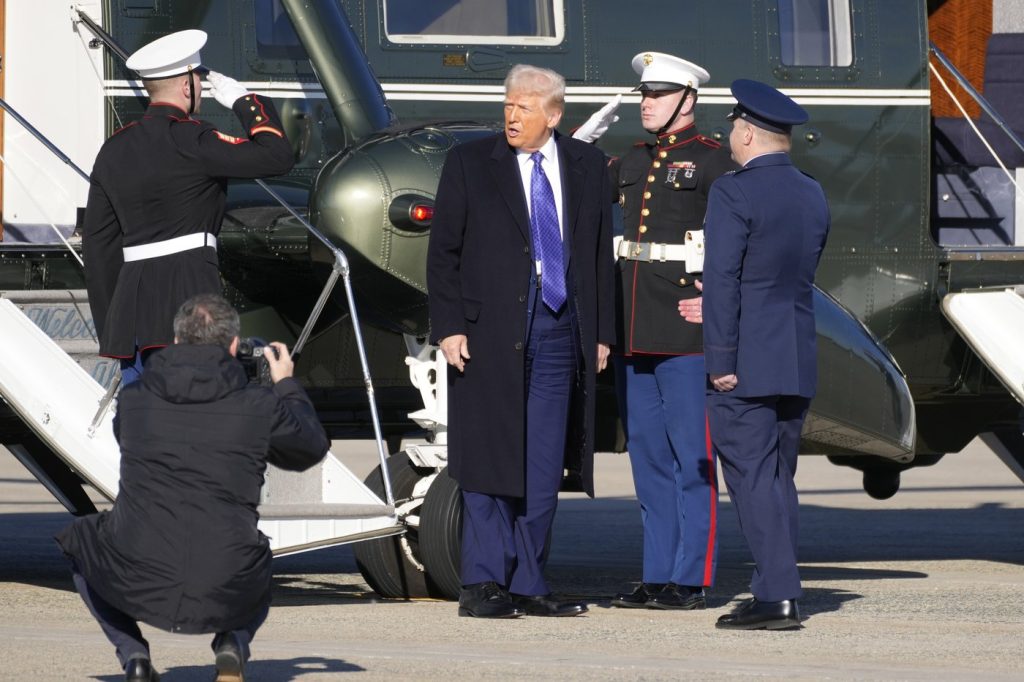The White House recently took the unusual step of barring a credentialed Associated Press (AP) reporter and photographer from boarding Air Force One for a weekend trip with President Donald Trump. The exclusion was attributed to the AP's refusal to adopt Trump's preferred terminology for the Gulf of Mexico, which he has controversially renamed the "Gulf of America." This development marks a significant escalation in an ongoing dispute between the White House and the AP over access to presidential events.
Throughout the week, the Trump administration had already restricted the AP's coverage of multiple events at the White House. This included denying access during a news conference with Indian Prime Minister Modi and several other occasions in the Oval Office. The administration's rationale for these actions centers on the AP's insistence on referring to the long-established body of water as the Gulf of Mexico, despite Trump’s directive to rename it.
As part of a journalistic pool, AP reporters and photographers typically travel with the president, providing coverage to audiences worldwide. This relationship has endured for decades; however, the current situation has prompted journalists to view the White House's actions as a violation of First Amendment rights. They argue that it constitutes an attempt to influence media narratives through punitive measures. The Trump administration, on the other hand, disputes the notion of any special rights held by the AP regarding event access, suggesting their commitment to "misinformation" justifies this exclusion.
AP spokesperson Lauren Easton articulated the AP's perspective, emphasizing that "Freedom of speech is a pillar of American democracy." She expressed concern over the White House's decision to restrict access based on editorial choices regarding the geographic name, suggesting it undermines constitutional protections that should apply to all Americans. The AP has maintained that it will continue to refer to the Gulf as the Gulf of Mexico while also acknowledging Trump's renamed designation in specific contexts.
In a related shift, the AP had recently reverted to referring to Denali instead of Mount McKinley for the Alaskan mountain that Trump had previously ordered to be renamed. The complex dynamics surrounding language and its political implications have surfaced anew with the Gulf naming controversy. White House deputy chief of staff Taylor Budowich defended the administration’s position on social media, stating that the AP was ignoring the "lawful geographic name change" and claiming it reflects the news organization’s commitment to misinformation.
While the First Amendment protects the AP's reporting rights, Budowich clarified that it does not guarantee unrestricted access to limited spaces like the Oval Office or Air Force One. He affirmed that the AP would maintain its credentials for the White House complex overall, but access to specific events could be limited based on perceived editorial biases.
On the day of the planned trip, an AP journalist and photographer arrived at Joint Base Andrews but were denied passage onto Air Force One after clearing security. This decision was described as "outlet-specific" by officials at the scene. Meanwhile, journalists from other news organizations aboard the plane sent the AP photographs depicting welcome cards awaiting their seats, highlighting the exclusion.
Responses from the wider journalism community have included statements from major outlets. Both The New York Times and The Washington Post expressed solidarity with the AP, condemning the Trump administration's actions as a threat to press freedoms. The White House Correspondents Association also voiced its disapproval, underscoring the critical role AP's access plays in maintaining an informed public through independent journalism. Press Secretary Karoline Leavitt previously described AP's reporting as "lies," further illustrating the contentious nature of this ongoing interaction between the White House and the media.










